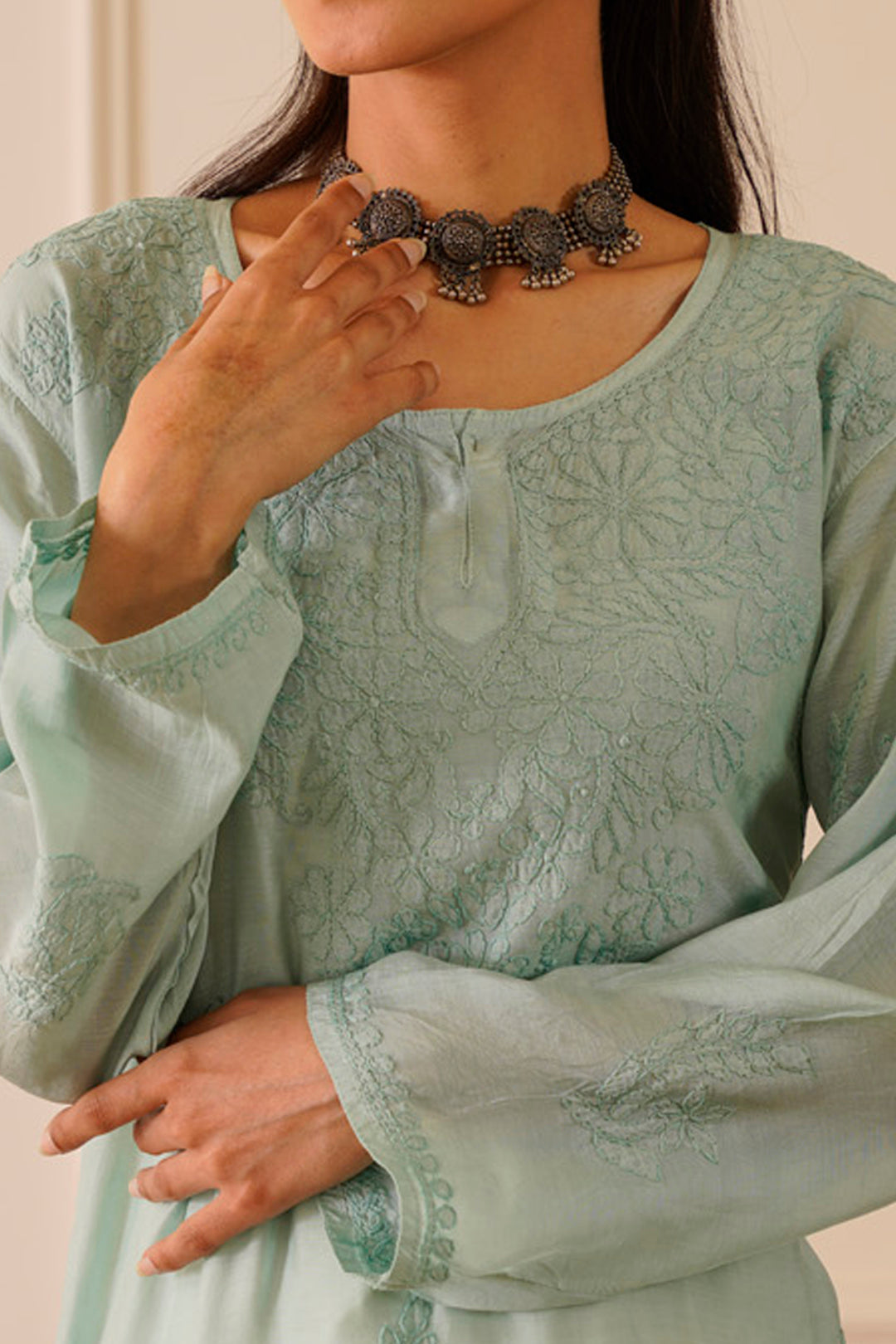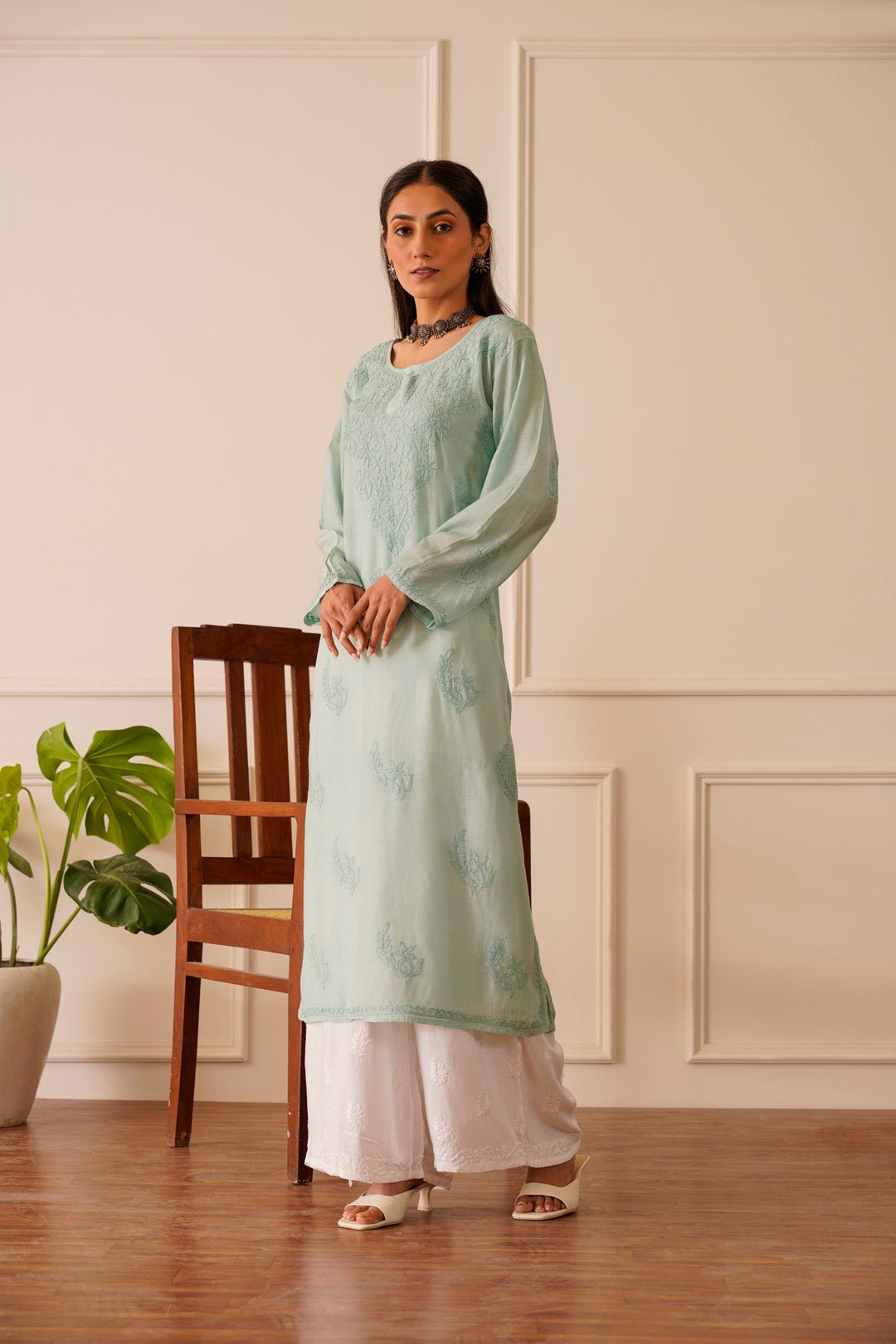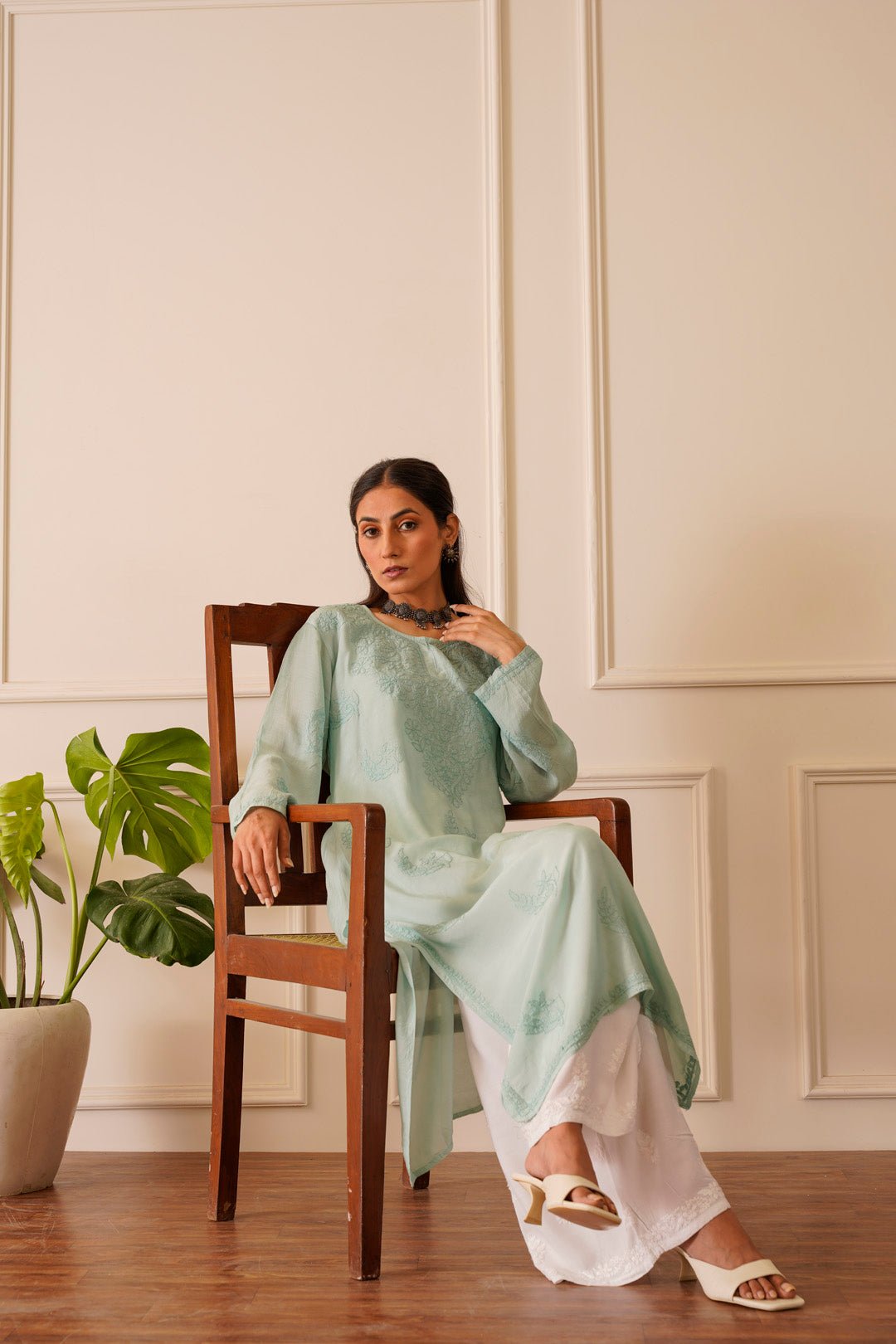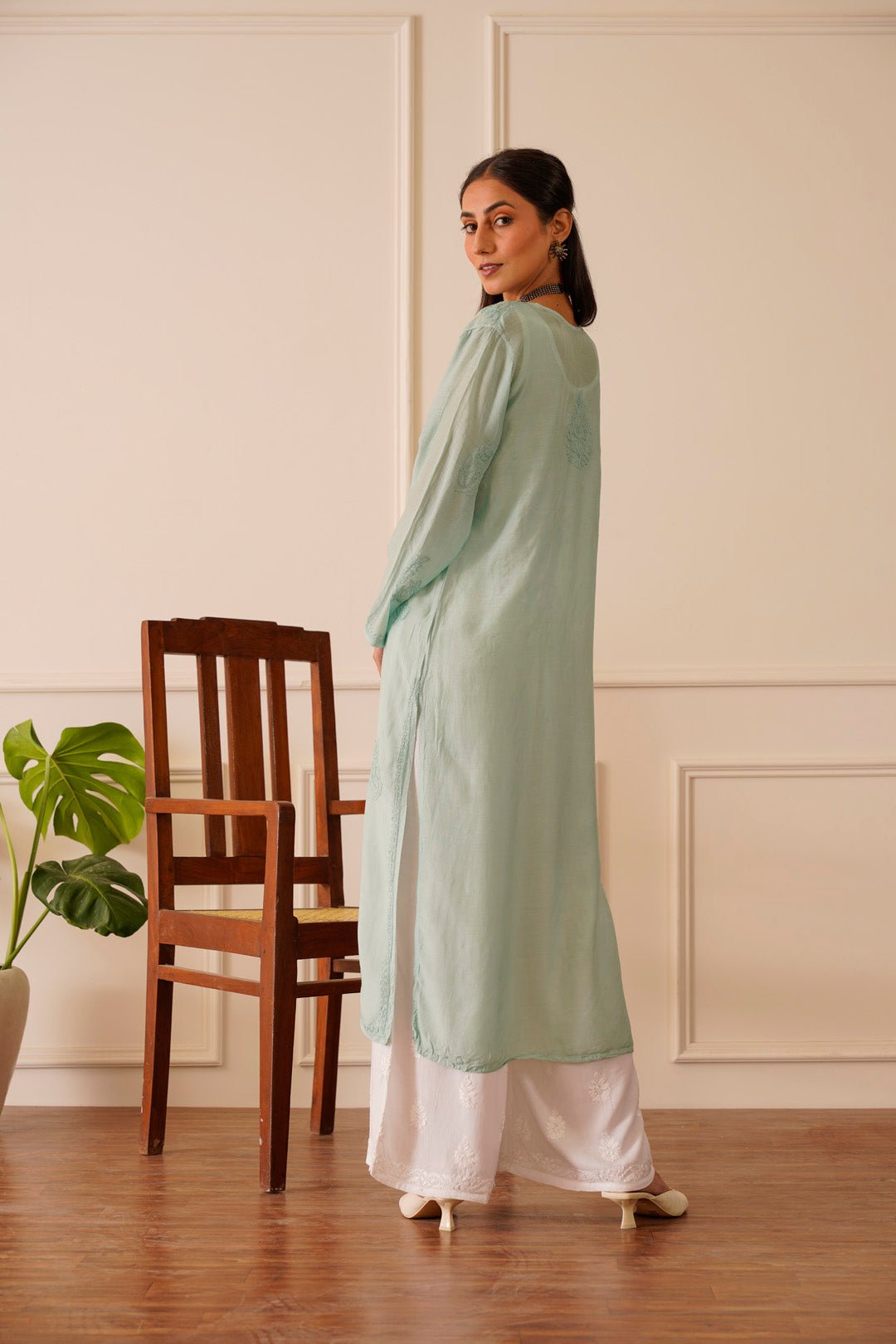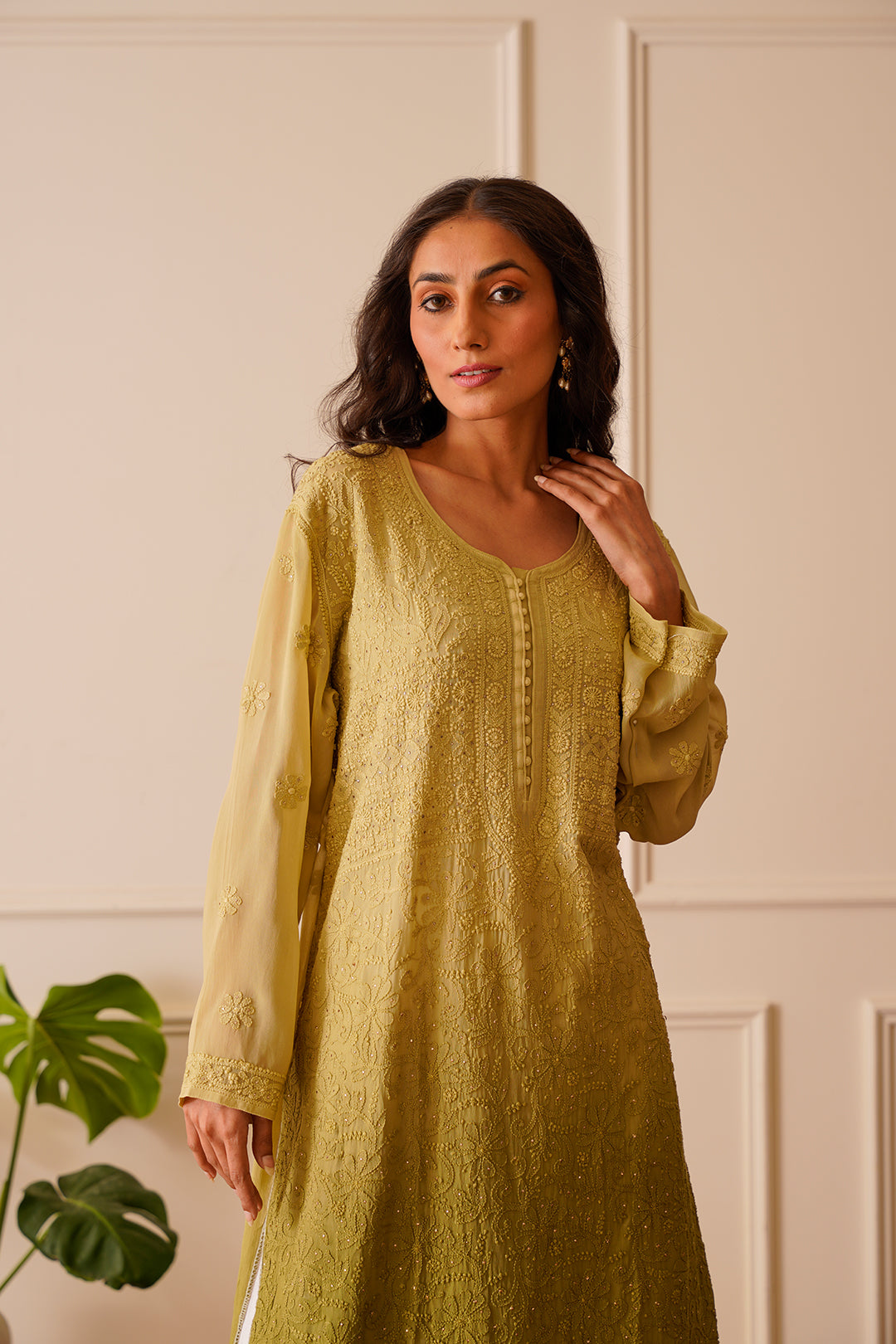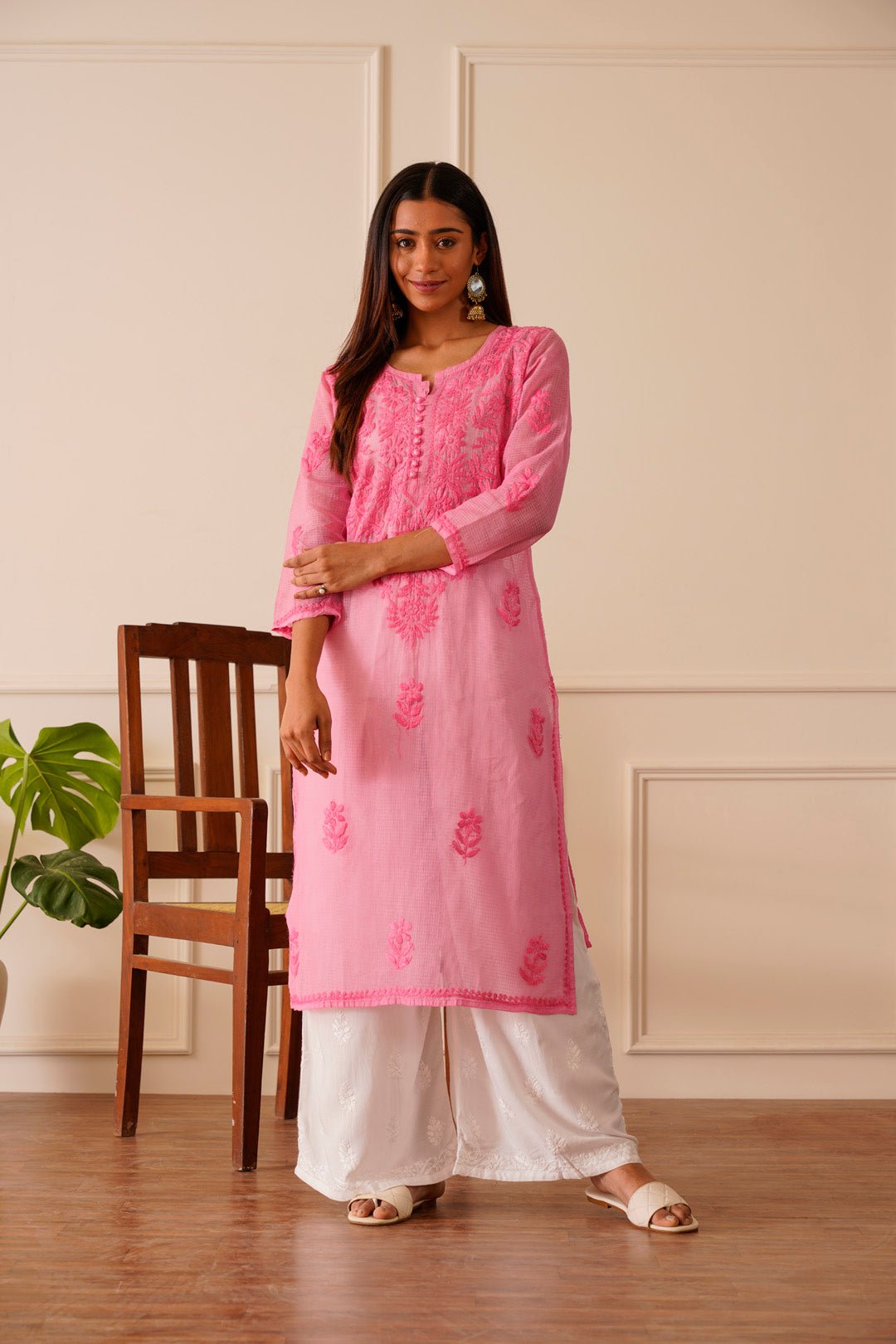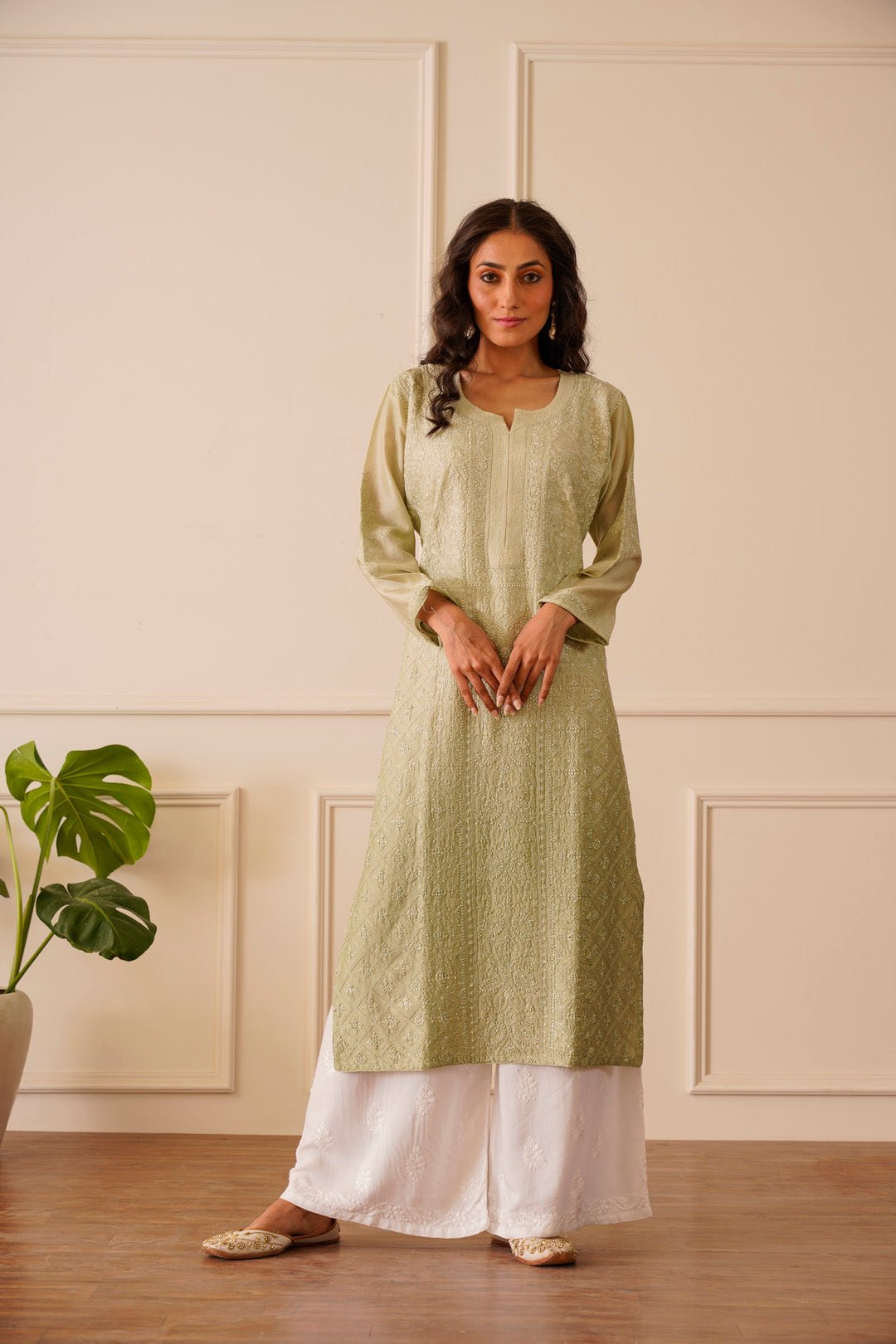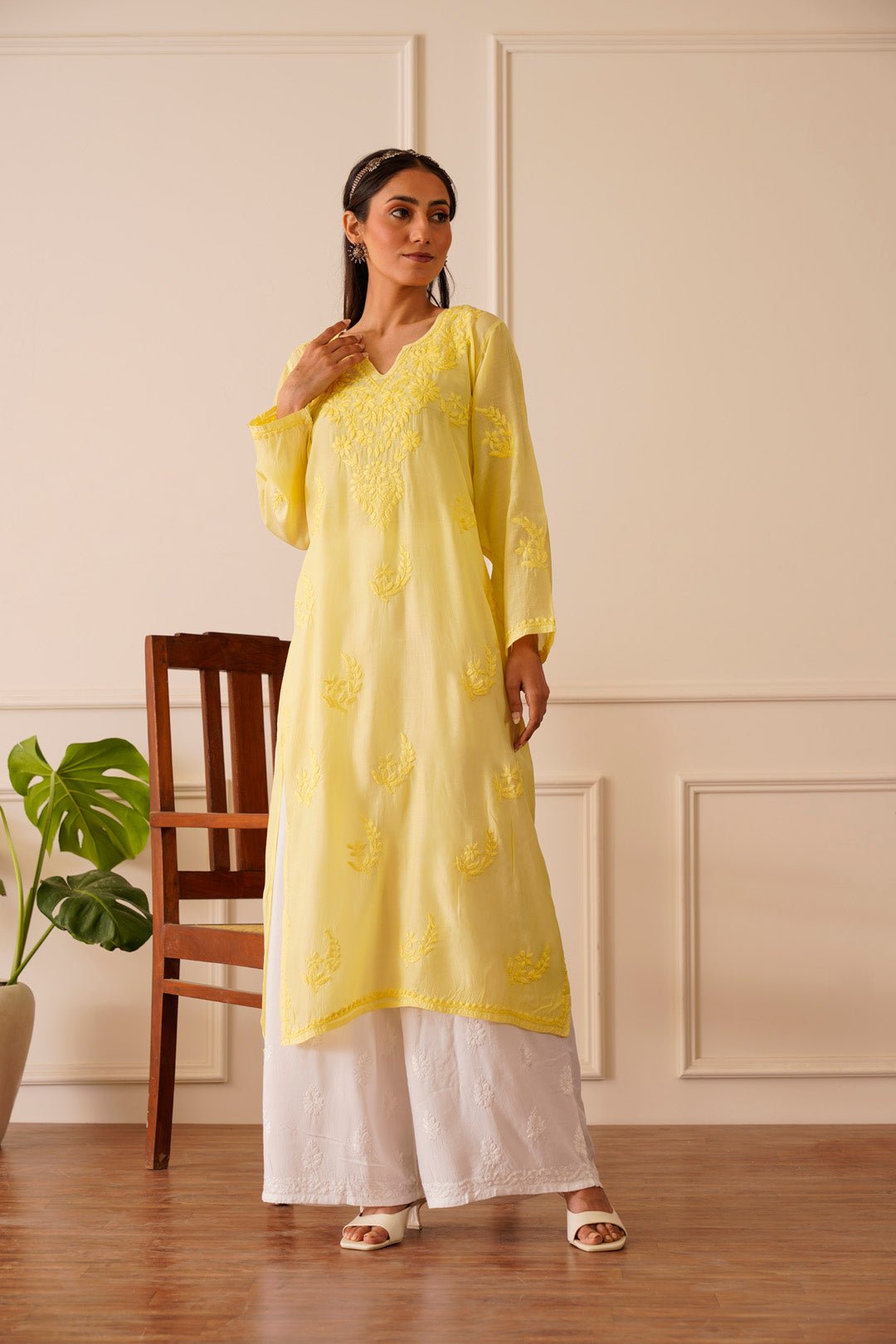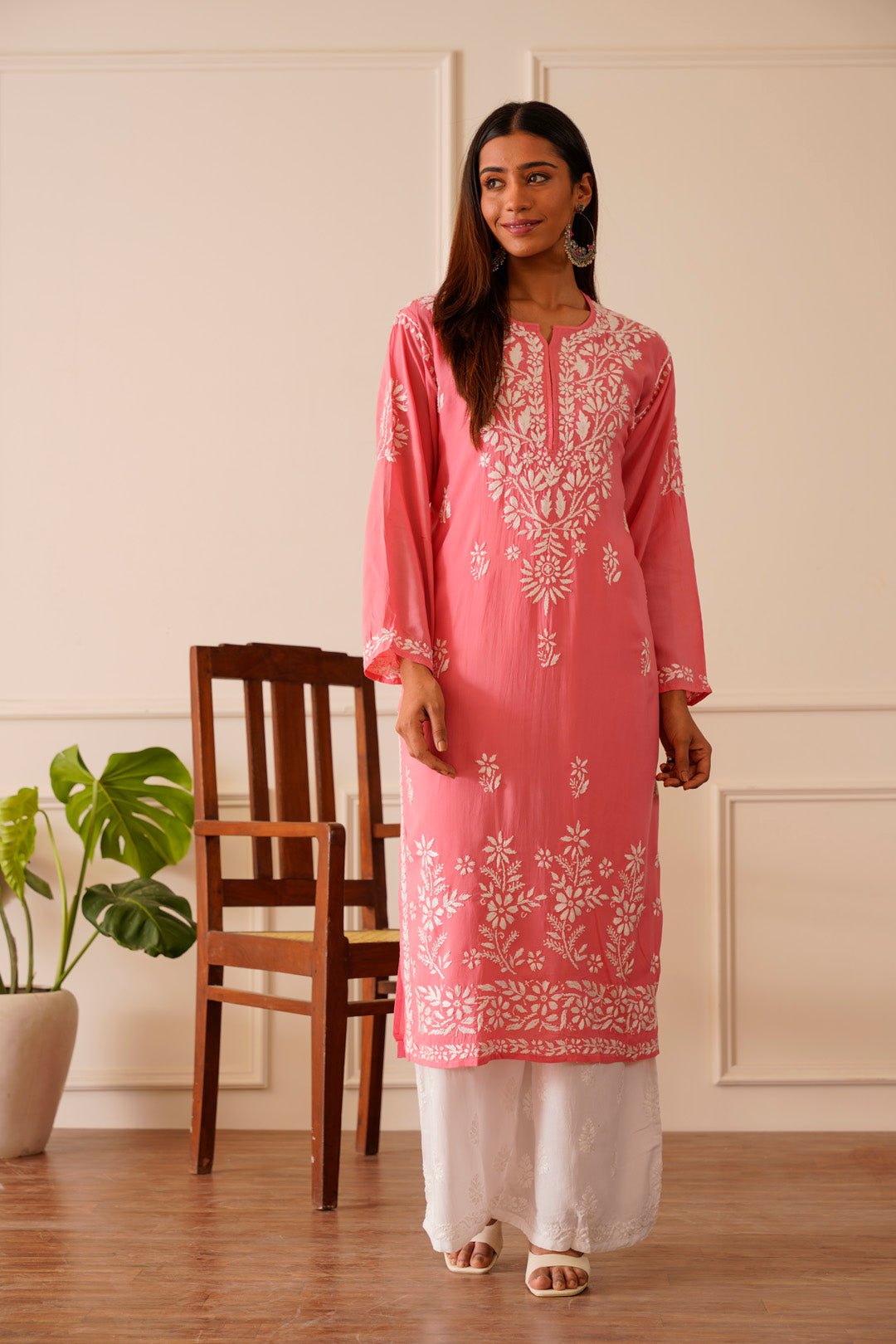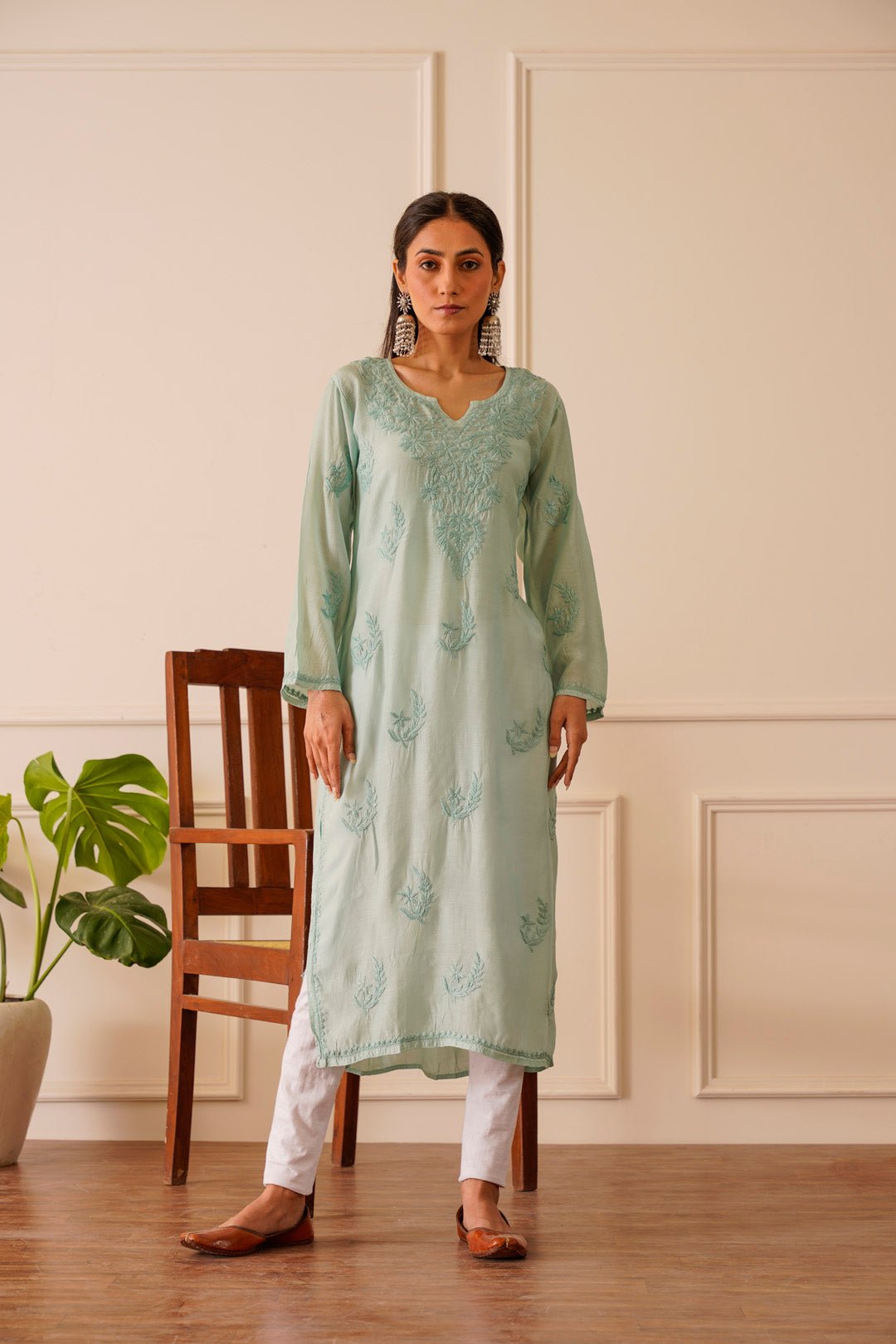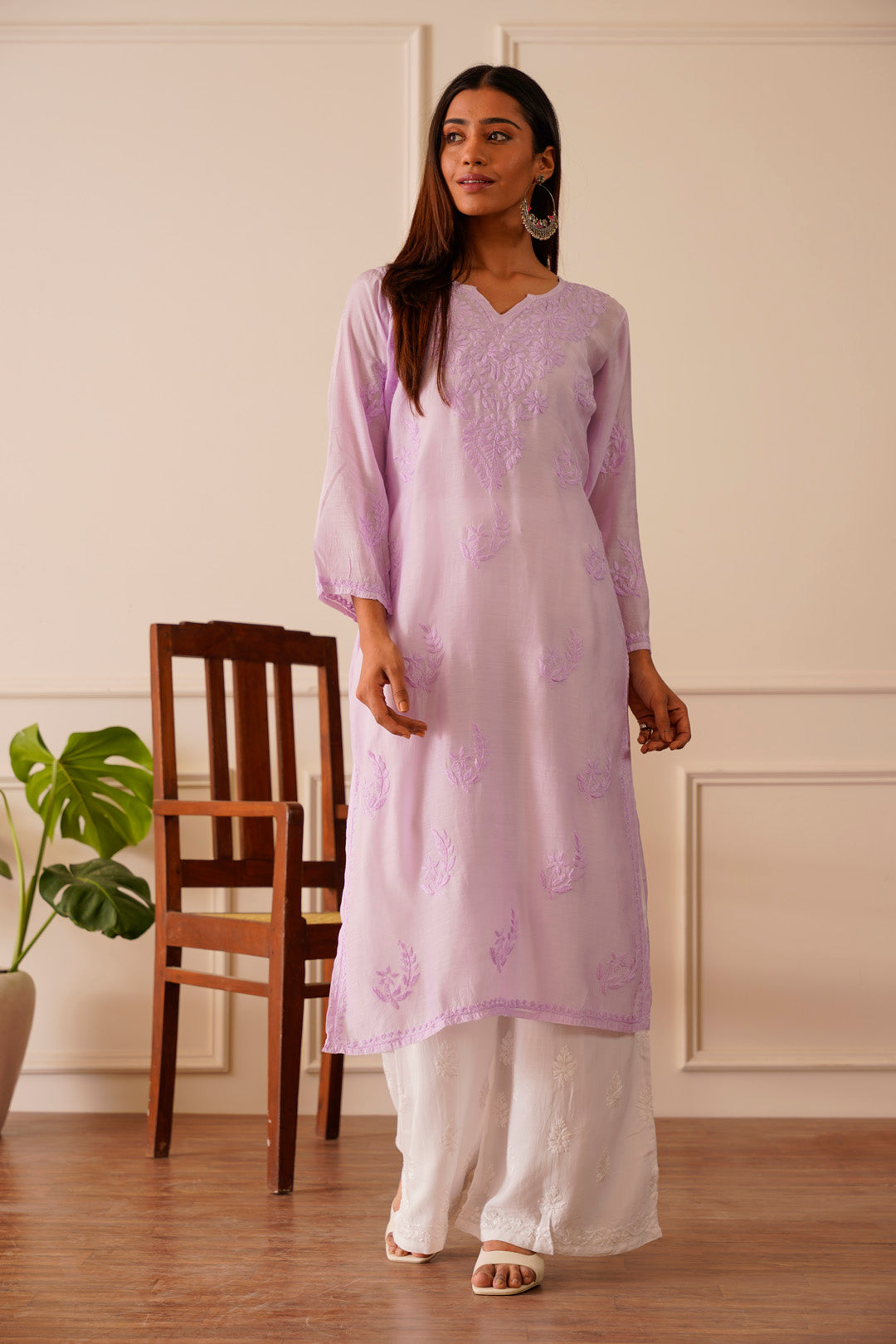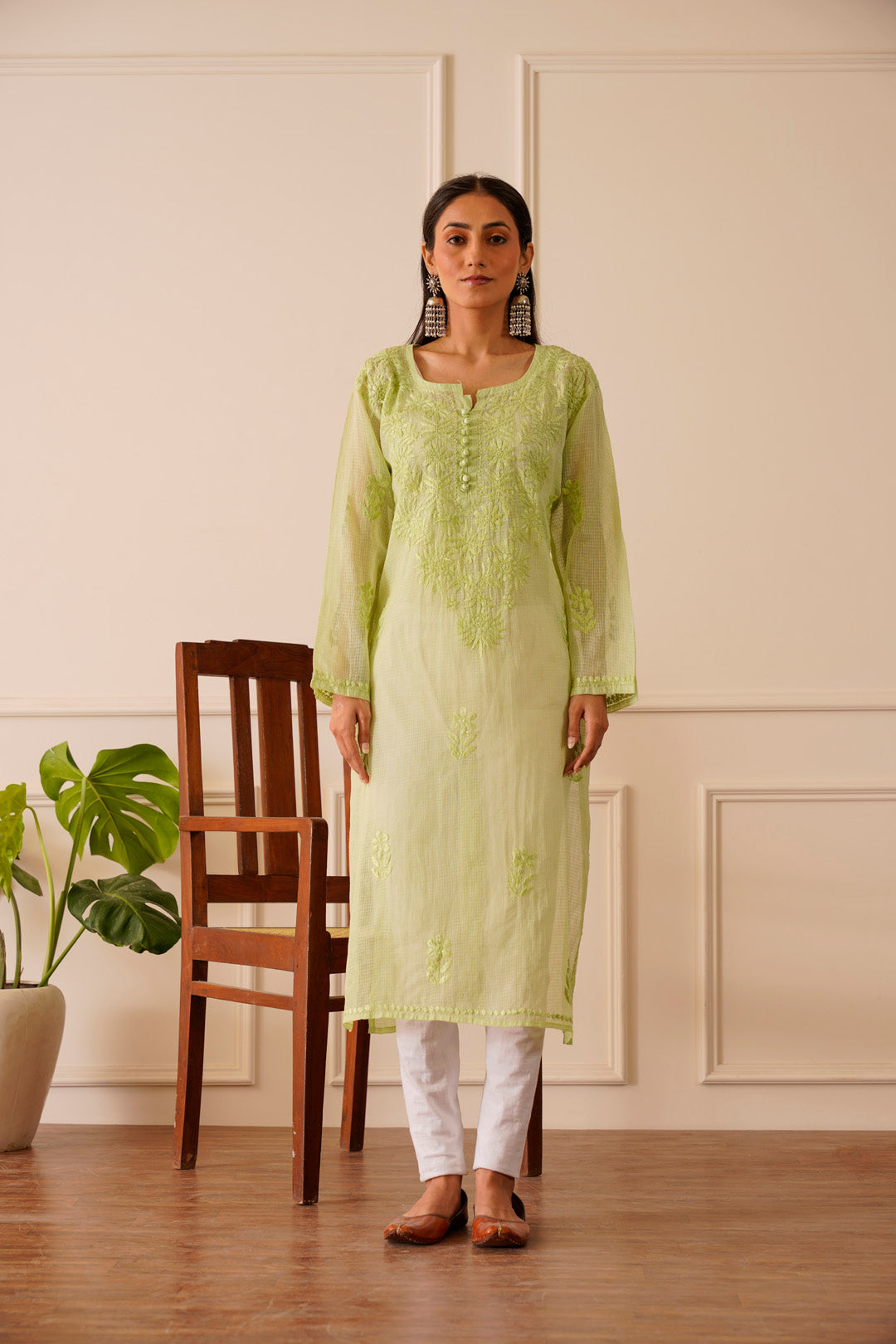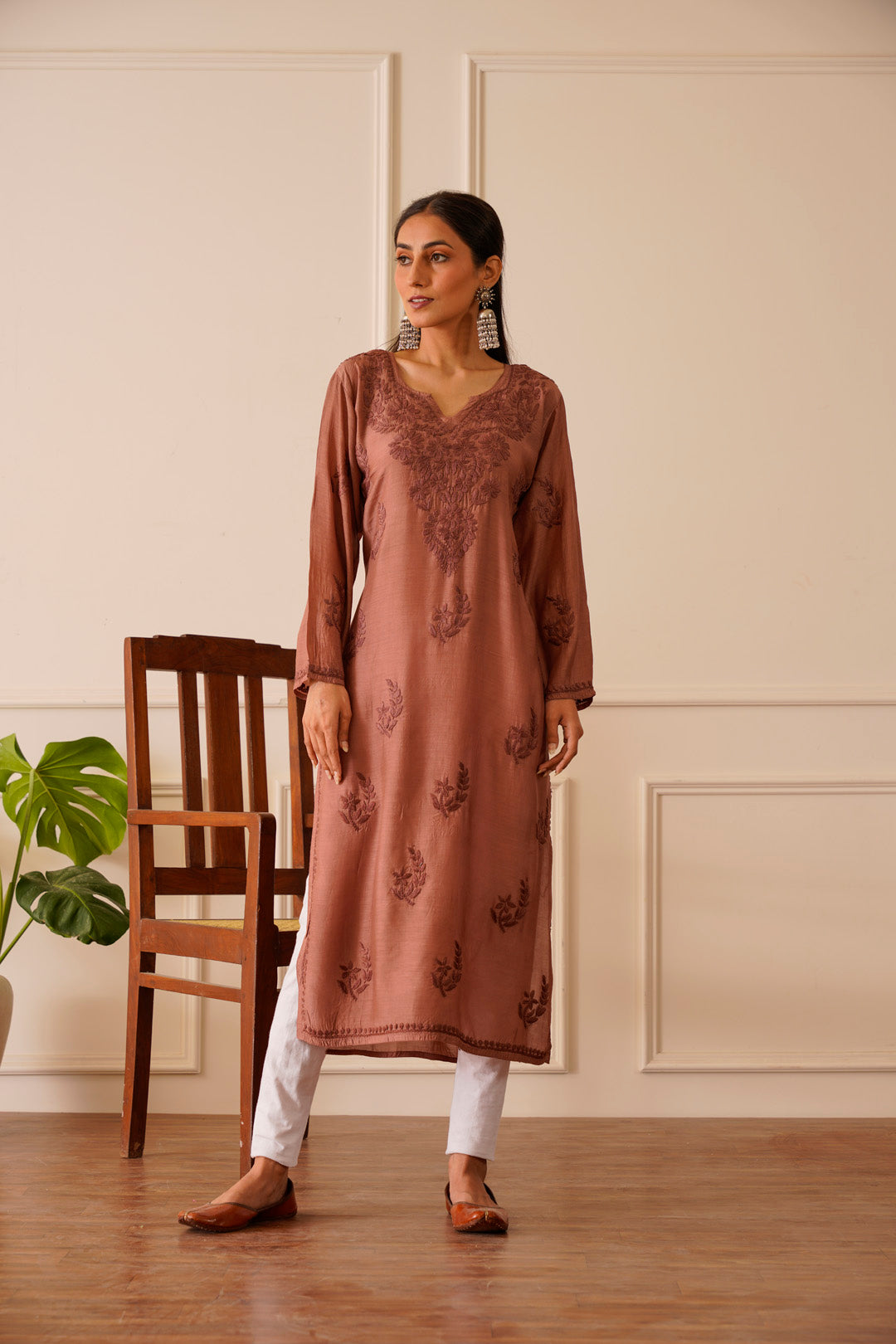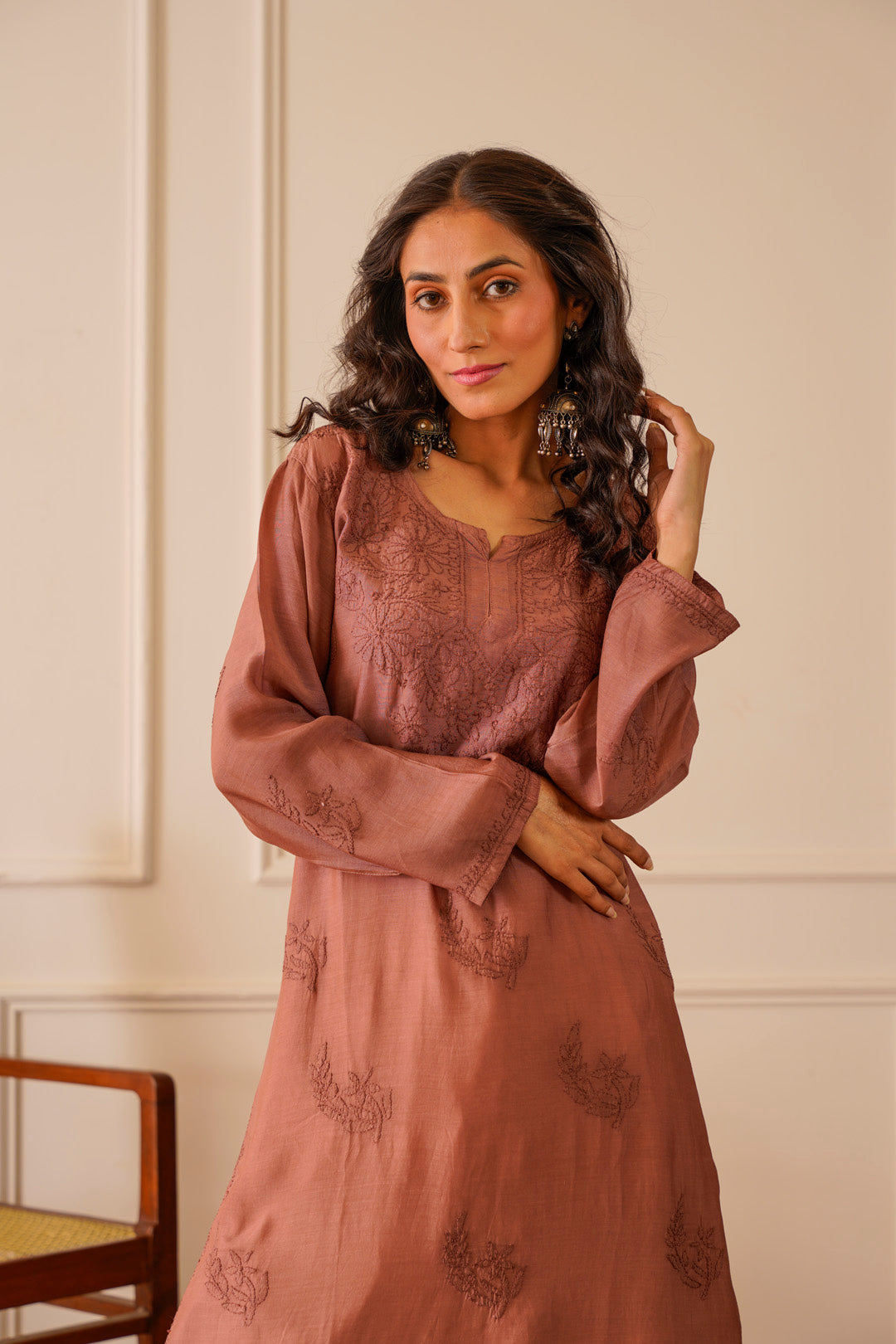Skip to product information
Description
Breathtaking Turquoise Muslin Straight Kurta meticulously crafted with attention to detail and a perfect blend of traditional and contemporary elements
Return & Exchange Policy
We have a no refund policy.
We'd be happy to exchange any item that is unworn, unused, unwashed, unaltered, undamaged and retaining the original tags, within 5 days from the date of delivery, for a different size or style. We accept returns only if the product is damaged.
To read the return and exchange policy in detail, please visit our Return & Exchange Policy section. For more details, please reach out to us on info@houseofawadh.com
Garment Care
• We recommend to hand wash in cold water or dry clean only.
• Do not soak and scrub the product and dry it in shade.
• Do not iron on embellishments.
• If it is a naturally dyed, It might bleed during the first few washes. Don't get scared.
• Do not soak and scrub the product and dry it in shade.
• Do not iron on embellishments.
• If it is a naturally dyed, It might bleed during the first few washes. Don't get scared.
More Information
Please note:
• As these garments are hand embroidered, the embroidery in the garment you receive may vary a little from the actual image.
• Product images are for illustrative purposes only and the colors may vary slightly due to photographic lighting sources or Your monitor settings/ phone resolutions.
Chikankari hand-embroidered garments are exquisite and intricate, but like any handcrafted items, they may have some defects. Some common defects found in Chikankari hand-embroidered garments include:
• Loose Threads: During the embroidery process, some threads may not be secured properly, leading to loose threads that can affect the overall appearance and durability of the garment.
• Uneven Stitches: Hand embroidery requires immense skill, and slight variations in the stitching may occur, resulting in uneven patterns or motifs.
• Puckering: Puckering is the wrinkling or gathering of fabric around the embroidered area due to tension in the embroidery threads.
• Knots and Snags: Small knots or snags in the embroidery can occur, especially when intricate stitches are used, which may affect the smoothness of the garment.
• Color Variations: In hand embroidery, color variations may occur, as different batches of thread or natural dyes might result in slight color discrepancies.
• Misalignment: If the fabric is not correctly aligned during the embroidery process, the motifs may appear slightly off-center or not aligned symmetrically.
• Fading: Natural dyes used in Chikankari embroidery may fade over time with exposure to sunlight and washing, affecting the vibrancy of the colors.
• Stain Marks: Occasionally, the garment may have minor stains or marks due to the hand dyeing or washing process.
• Fraying: Delicate fabrics used in Chikankari embroidery may be prone to fraying around the edges.
• Reinforcement Required: Some areas with heavy embroidery might require additional reinforcement to prevent tearing or fraying.
It's essential to understand that these imperfections are part of the charm and uniqueness of handcrafted Chikankari garments. Skilled artisans put their heart and soul into creating each piece, and these minor defects add to the authenticity and beauty of the craft.
• As these garments are hand embroidered, the embroidery in the garment you receive may vary a little from the actual image.
• Product images are for illustrative purposes only and the colors may vary slightly due to photographic lighting sources or Your monitor settings/ phone resolutions.
Chikankari hand-embroidered garments are exquisite and intricate, but like any handcrafted items, they may have some defects. Some common defects found in Chikankari hand-embroidered garments include:
• Loose Threads: During the embroidery process, some threads may not be secured properly, leading to loose threads that can affect the overall appearance and durability of the garment.
• Uneven Stitches: Hand embroidery requires immense skill, and slight variations in the stitching may occur, resulting in uneven patterns or motifs.
• Puckering: Puckering is the wrinkling or gathering of fabric around the embroidered area due to tension in the embroidery threads.
• Knots and Snags: Small knots or snags in the embroidery can occur, especially when intricate stitches are used, which may affect the smoothness of the garment.
• Color Variations: In hand embroidery, color variations may occur, as different batches of thread or natural dyes might result in slight color discrepancies.
• Misalignment: If the fabric is not correctly aligned during the embroidery process, the motifs may appear slightly off-center or not aligned symmetrically.
• Fading: Natural dyes used in Chikankari embroidery may fade over time with exposure to sunlight and washing, affecting the vibrancy of the colors.
• Stain Marks: Occasionally, the garment may have minor stains or marks due to the hand dyeing or washing process.
• Fraying: Delicate fabrics used in Chikankari embroidery may be prone to fraying around the edges.
• Reinforcement Required: Some areas with heavy embroidery might require additional reinforcement to prevent tearing or fraying.
It's essential to understand that these imperfections are part of the charm and uniqueness of handcrafted Chikankari garments. Skilled artisans put their heart and soul into creating each piece, and these minor defects add to the authenticity and beauty of the craft.
Breathtaking Turquoise Muslin Straight Kurta
Regular price
Rs. 2,850.00
Sold out
Tax included. Shipping calculated at checkout
HOACC00002S
- S
- M
- L
- XL
- Muslin
Offers
HOA10
Grab a 10% Discount on your First Purchase. Use the code at the time of Checkout.
HOA555
Avail ₹555 Discount on your order above ₹5000. Use the code at the time of Checkout.
HOA1100
Avail ₹1100 Discount on your order above ₹9999. Use the code at the time of Checkout.
Adding product to your cart
Description
Breathtaking Turquoise Muslin Straight Kurta meticulously crafted with attention to detail and a perfect blend of traditional and contemporary elements
Return & Exchange Policy
We have a no refund policy.
We'd be happy to exchange any item that is unworn, unused, unwashed, unaltered, undamaged and retaining the original tags, within 5 days from the date of delivery, for a different size or style. We accept returns only if the product is damaged.
To read the return and exchange policy in detail, please visit our Return & Exchange Policy section. For more details, please reach out to us on info@houseofawadh.com
Garment Care
• We recommend to hand wash in cold water or dry clean only.
• Do not soak and scrub the product and dry it in shade.
• Do not iron on embellishments.
• If it is a naturally dyed, It might bleed during the first few washes. Don't get scared.
• Do not soak and scrub the product and dry it in shade.
• Do not iron on embellishments.
• If it is a naturally dyed, It might bleed during the first few washes. Don't get scared.
More Information
Please note:
• As these garments are hand embroidered, the embroidery in the garment you receive may vary a little from the actual image.
• Product images are for illustrative purposes only and the colors may vary slightly due to photographic lighting sources or Your monitor settings/ phone resolutions.
Chikankari hand-embroidered garments are exquisite and intricate, but like any handcrafted items, they may have some defects. Some common defects found in Chikankari hand-embroidered garments include:
• Loose Threads: During the embroidery process, some threads may not be secured properly, leading to loose threads that can affect the overall appearance and durability of the garment.
• Uneven Stitches: Hand embroidery requires immense skill, and slight variations in the stitching may occur, resulting in uneven patterns or motifs.
• Puckering: Puckering is the wrinkling or gathering of fabric around the embroidered area due to tension in the embroidery threads.
• Knots and Snags: Small knots or snags in the embroidery can occur, especially when intricate stitches are used, which may affect the smoothness of the garment.
• Color Variations: In hand embroidery, color variations may occur, as different batches of thread or natural dyes might result in slight color discrepancies.
• Misalignment: If the fabric is not correctly aligned during the embroidery process, the motifs may appear slightly off-center or not aligned symmetrically.
• Fading: Natural dyes used in Chikankari embroidery may fade over time with exposure to sunlight and washing, affecting the vibrancy of the colors.
• Stain Marks: Occasionally, the garment may have minor stains or marks due to the hand dyeing or washing process.
• Fraying: Delicate fabrics used in Chikankari embroidery may be prone to fraying around the edges.
• Reinforcement Required: Some areas with heavy embroidery might require additional reinforcement to prevent tearing or fraying.
It's essential to understand that these imperfections are part of the charm and uniqueness of handcrafted Chikankari garments. Skilled artisans put their heart and soul into creating each piece, and these minor defects add to the authenticity and beauty of the craft.
• As these garments are hand embroidered, the embroidery in the garment you receive may vary a little from the actual image.
• Product images are for illustrative purposes only and the colors may vary slightly due to photographic lighting sources or Your monitor settings/ phone resolutions.
Chikankari hand-embroidered garments are exquisite and intricate, but like any handcrafted items, they may have some defects. Some common defects found in Chikankari hand-embroidered garments include:
• Loose Threads: During the embroidery process, some threads may not be secured properly, leading to loose threads that can affect the overall appearance and durability of the garment.
• Uneven Stitches: Hand embroidery requires immense skill, and slight variations in the stitching may occur, resulting in uneven patterns or motifs.
• Puckering: Puckering is the wrinkling or gathering of fabric around the embroidered area due to tension in the embroidery threads.
• Knots and Snags: Small knots or snags in the embroidery can occur, especially when intricate stitches are used, which may affect the smoothness of the garment.
• Color Variations: In hand embroidery, color variations may occur, as different batches of thread or natural dyes might result in slight color discrepancies.
• Misalignment: If the fabric is not correctly aligned during the embroidery process, the motifs may appear slightly off-center or not aligned symmetrically.
• Fading: Natural dyes used in Chikankari embroidery may fade over time with exposure to sunlight and washing, affecting the vibrancy of the colors.
• Stain Marks: Occasionally, the garment may have minor stains or marks due to the hand dyeing or washing process.
• Fraying: Delicate fabrics used in Chikankari embroidery may be prone to fraying around the edges.
• Reinforcement Required: Some areas with heavy embroidery might require additional reinforcement to prevent tearing or fraying.
It's essential to understand that these imperfections are part of the charm and uniqueness of handcrafted Chikankari garments. Skilled artisans put their heart and soul into creating each piece, and these minor defects add to the authenticity and beauty of the craft.
-
Alluring Light Pink Kota Doria Straight KurtaRs. 2,850.00
-
-
Captivating Light Yellow Muslin Straight KurtaRs. 2,850.00
-
Charming Pink Modal Straight KurtaRs. 3,200.00
-
Charming Turquoise Muslin Straight KurtaRs. 2,850.00
-
Delightful Lavender Muslin Straight KurtaRs. 2,850.00
-
Delightful Light Green Kota Doria Straight KurtaRs. 2,850.00
-
Enchanting Brown Muslin Straight KurtaRs. 2,850.001 review
-
Ethereal Brown Muslin Straight KurtaRs. 2,850.00
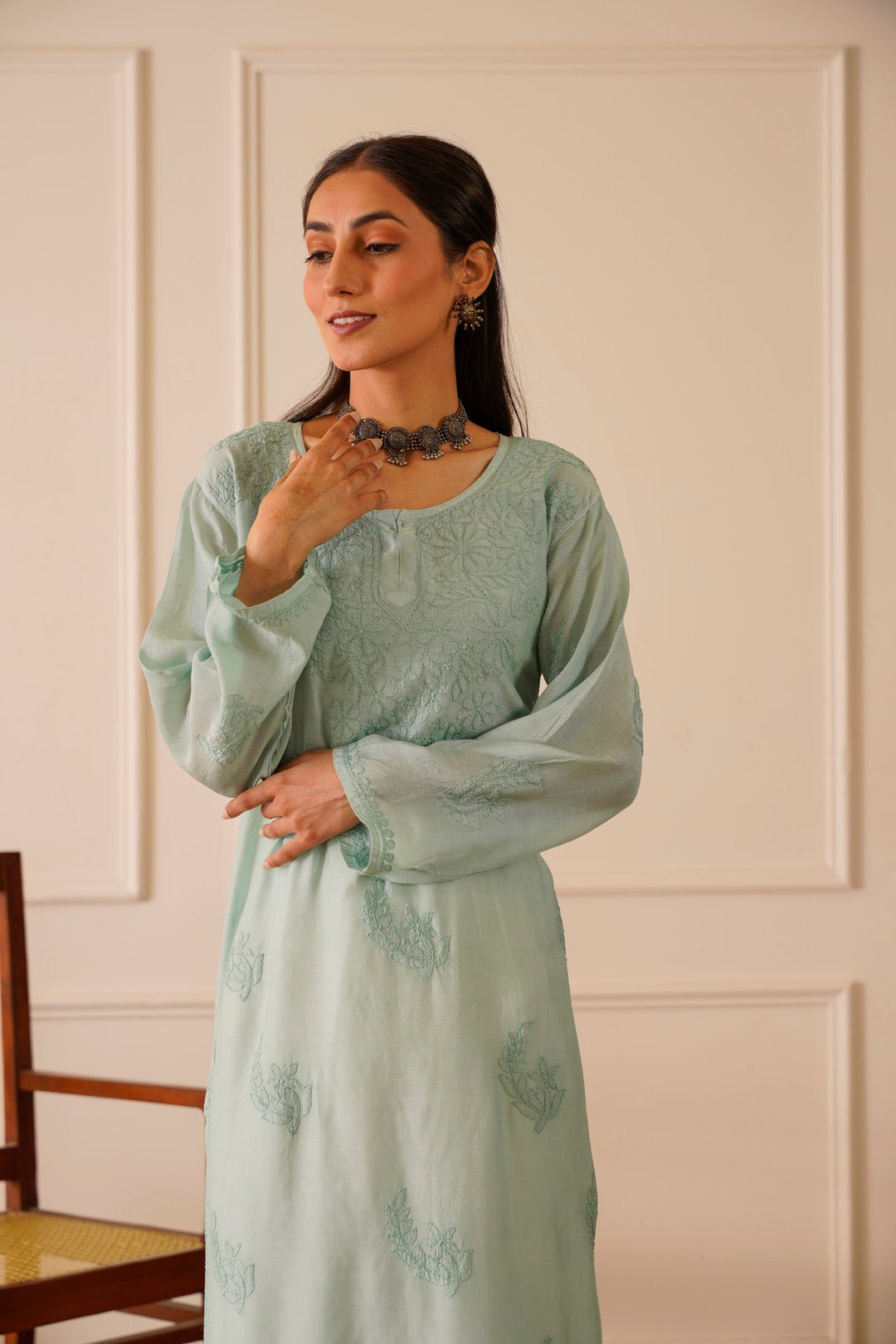
Breathtaking Turquoise Muslin Straight Kurta
Regular price
Rs. 2,850.00
Sold out

